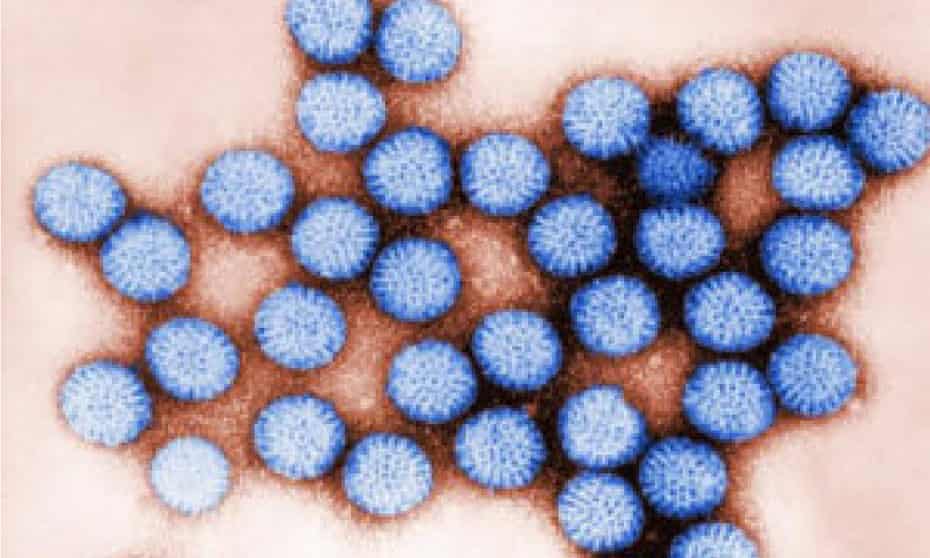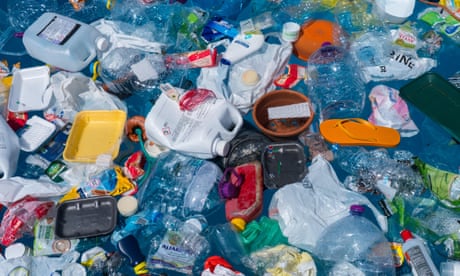Viruses survive in fresh water by ‘hitchhiking’ on plastic, study finds
Intestinal viruses such as rotavirus were found to be infectious for up to three days by attaching to microplastics, research shows

Seascape: the state of our oceans is supported by

@karenmcveigh1Mon 27 Jun 2022 01.01 EDT
Dangerous viruses can remain infectious for up to three days in fresh water by hitchhiking on plastic, researchers have found.
Enteric viruses that cause diarrhoea and stomach upsets, such as rotavirus, were found to survive in water by attaching to microplastics, tiny particles less than 5mm long. They remain infectious, University of Stirling researchers found, posing a potential health risk.
Prof Richard Quilliam, lead researcher on the project at Stirling University, said: “We found that viruses can attach to microplastics and that allows them to survive in the water for three days, possibly longer.”
While previous research had been carried out in sterile settings, this is the first research into how viruses behave in the environment, Quilliam said. However, he used standard laboratory methods to determine whether viruses found on microplastics in water were infectious.
“We weren’t sure how well viruses could survive by ‘hitchhiking’ on plastic in the environment, but they do survive and they do remain infectious,” he said.
The findings, part of a £1.85m project funded by the Natural Environment Research Council looking at how plastics transport bacteria and viruses, concluded that microplastics enabled pathogen transfer in the environment. The paper is published in the journal Environmental Pollution.
“Being infectious in the environment for three days, that’s long enough to get from the wastewater treatment works to the public beach,” Quilliam said.
Wastewater treatment plants were unable to capture microplastics, he said. “Even if a wastewater treatment plant is doing everything it can to clean sewage waste, the water discharged still has microplastics in it, which are then transported down the river, into the estuary and wind up on the beach.”
These plastic particles are so tiny that they could be swallowed by swimmers. “Sometimes they wash up on the beach as lentil-sized, brightly coloured pellets called nurdles that children might pick up and put in their mouths. It doesn’t take many virus particles to make you sick,” Quilliam said.

While the impact of microplastics on human health remains uncertain, “if those bits of microplastics are colonised by human pathogens, then that could well be a significant health risk,” said Quilliam.
The researchers tested two types of viruses – those with an envelope around them, “a kind of lipid coat”, such as the flu virus, and those without – enteric viruses such as rotavirus and norovirus. They found that in those with a coating, the envelope quickly dissolved and the virus died, whereas those without an envelope successfully bound to the microplastics and survived.
“Viruses can also bind to natural surfaces in the environment,” said Quilliam, “but plastic pollution lasts a lot longer than those materials.”
The researchers tested the viruses for three days, but aim to study how long they might remain infectious in future research.
Another study by Quilliam’s team last month discovered levels of faecal bacteria on wet wipes and cotton buds washed up on beaches posed a health risk. They first found sewage bacteria “hitchhiking” on plastic pellets on Scottish beaches in 2019.